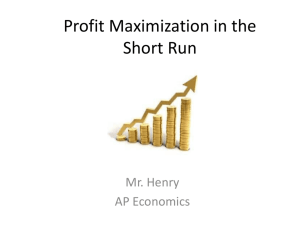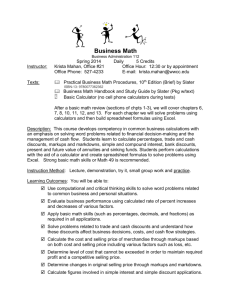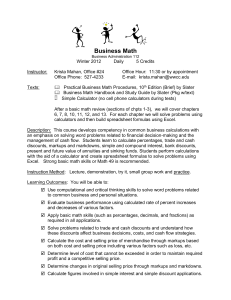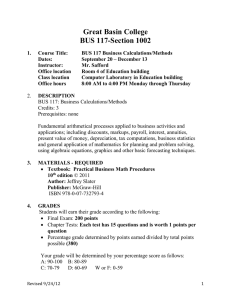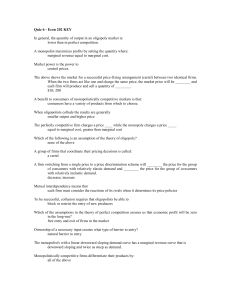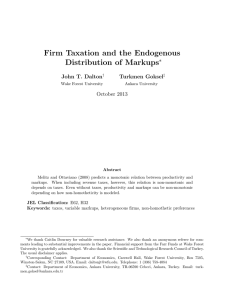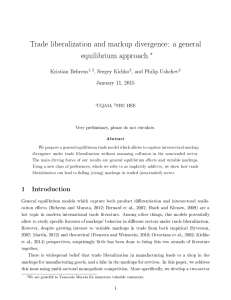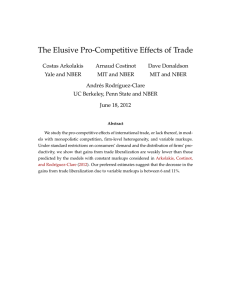Prices, Markups and Trade Reform
advertisement
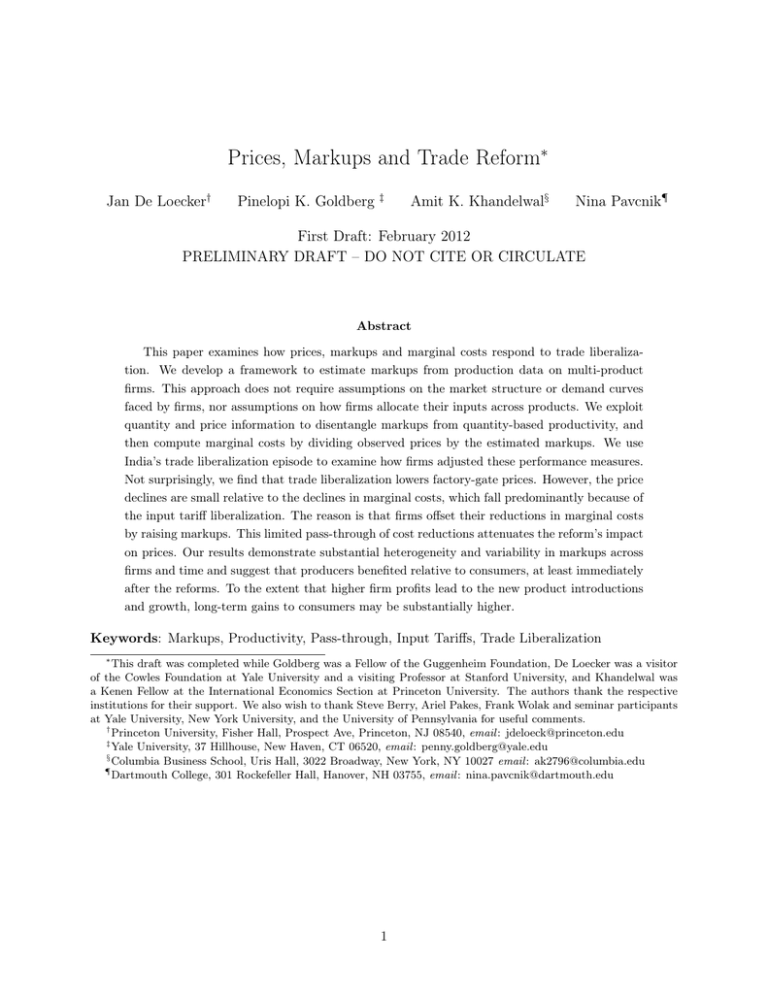
Prices, Markups and Trade Reform∗ Jan De Loecker† Pinelopi K. Goldberg ‡ Amit K. Khandelwal§ Nina Pavcnik¶ First Draft: February 2012 PRELIMINARY DRAFT – DO NOT CITE OR CIRCULATE Abstract This paper examines how prices, markups and marginal costs respond to trade liberalization. We develop a framework to estimate markups from production data on multi-product firms. This approach does not require assumptions on the market structure or demand curves faced by firms, nor assumptions on how firms allocate their inputs across products. We exploit quantity and price information to disentangle markups from quantity-based productivity, and then compute marginal costs by dividing observed prices by the estimated markups. We use India’s trade liberalization episode to examine how firms adjusted these performance measures. Not surprisingly, we find that trade liberalization lowers factory-gate prices. However, the price declines are small relative to the declines in marginal costs, which fall predominantly because of the input tariff liberalization. The reason is that firms offset their reductions in marginal costs by raising markups. This limited pass-through of cost reductions attenuates the reform’s impact on prices. Our results demonstrate substantial heterogeneity and variability in markups across firms and time and suggest that producers benefited relative to consumers, at least immediately after the reforms. To the extent that higher firm profits lead to the new product introductions and growth, long-term gains to consumers may be substantially higher. Keywords: Markups, Productivity, Pass-through, Input Tariffs, Trade Liberalization ∗ This draft was completed while Goldberg was a Fellow of the Guggenheim Foundation, De Loecker was a visitor of the Cowles Foundation at Yale University and a visiting Professor at Stanford University, and Khandelwal was a Kenen Fellow at the International Economics Section at Princeton University. The authors thank the respective institutions for their support. We also wish to thank Steve Berry, Ariel Pakes, Frank Wolak and seminar participants at Yale University, New York University, and the University of Pennsylvania for useful comments. † Princeton University, Fisher Hall, Prospect Ave, Princeton, NJ 08540, email : jdeloeck@princeton.edu ‡ Yale University, 37 Hillhouse, New Haven, CT 06520, email : penny.goldberg@yale.edu § Columbia Business School, Uris Hall, 3022 Broadway, New York, NY 10027 email : ak2796@columbia.edu ¶ Dartmouth College, 301 Rockefeller Hall, Hanover, NH 03755, email : nina.pavcnik@dartmouth.edu 1

